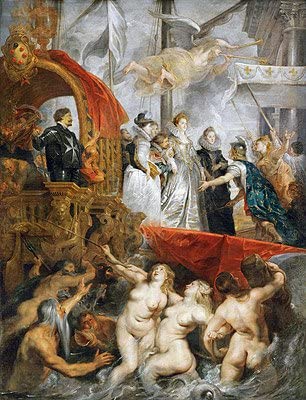Les Papillons
I
De toutes les belles choses
Qui nous manquent en hiver,
Qu’aimez–vous mieux? — Mois, les roses;
— Moi, l’aspect d’un beau pré vert;
— Moi, la moisson blondissante;
Chevelure des sillons;
— Moi, le rossignol qui chante;
— Et moi, les beaux papillons!
Le papillon, fleur sans tige,
Qui voltige,
Que l’on cueille en un réseau;
Dans la nature infinie,
Harmonie,
Entre la plante et l’oiseau!…
Quand revient l’été superbe,
Je m’en vais au bois tout seul:
Je m’étends dans la grande herbe,
Perdu dans ce vert linceul.
Sur ma tête renversée,
Là, chacun d’eux à son tour,
Passe comme une pensée
De poésie ou d’amour!
Voici le papillon faune,
Noir et jaune;
Voici le mars azuré,
Agitant des étincelles
Sur ses ailes
D’un velours riche et moiré.
Voici le vulcain rapide,
Qui vole comme l’oiseau:
Son aile noire et splendide
Porte un grand ruban ponceau.
Dieux! le soufré, dans l’espace,
Comme un éclair a relui…
Mais le joyeux nacré passe,
Et je ne vois plus que lui!
II
Comme un éventail de soie,
Il déploie
Son manteau semé d’argent;
Et sa robe bigarrée
Est dorée
D’un or verdâtre et changeant.
Voici le machaon–zèbre,
De fauve et de noir rayé;
Le deuil, en habit funèbre,
Et le miroir bleu strié;
Voici l’argus, feuille–morte,
Le morio, le grand–bleu,
Et la paon–de–jour qui porte
Sur chaque aile un œil de feu!
*
Mais le soir brunit nos plaines;
Les phalènes
Prennent leur essor bruyant,
Et les sphinx aux couleurs sombres,
Dans les ombres
Voltigent en tournoyant.
C’est le grand’paon à l’œil rose
Dessiné sur un fond gris,
Qui ne vole qu’à nuit close,
Comme les chauves–souris;
Le bombice du troëne,
Rayé de jaune et de vert,
Et le papillon du chêne
Qui ne meurt pas en hiver!
Voici le sphinx à la tête
De squelette,
Peinte en blanc sur un fond noir,
Que le villageois redoute,
Sur la route,
De voir voltiger le soir.
Je hais aussi les phalènes,
Sombres, hôtes de la nuit,
Qui voltigent dans nos plaines
De sept heures à minuit;
Mais vous, papillons que j’aime,
Légers papillons du jour,
Tout en vous est un emblème
De poésie et d’amour!
III
Malheur, papillons que j’aime,
Doux emblème,
À vous pour votre beauté!…
Un doigt, de votre corsage,
Au passage,
Froisse, hélas! le velouté!…
Une toute jeune fille,
Au cœur tendre, au doux souris,
Perçant vos cœurs d’une aiguille,
Vous contemple, l’œil surpris:
Et vos pattes sont coupées
Par l’ongle blanc qui les mord,
Et vos antennes crispées
Dans les douleurs de la mort!…
Butterflies
I
Of all the fine treasure
That winter forecloses,
What gives the most pleasure?
— For me, I say roses;
— For me, fair green meadows;
— The ripening harvest,
Blonde tress of the furrows;
— Nightingale’s melodies;
— For me, brilliant butterflies!
Butterfly, untethered flower,
Leaping and cavorting, yet
Captured in a cruel net.
Nature’s world, infinity:
Bud and bird in harmony!
When proud summer comes to pass,
I go lonely to the wood.
There I lie in tallest grass,
Lose myself in the green shroud:
Watch above my upturned head
Every one of them go by.
Thoughts of love, of poetry!
See the Monarch butterfly:
Black and gold his livery…
Purple Emperor in flight,
Sparks of light
Scurrying
On his rich, shot–velvet wing.
Red Admiral, he can speed
Like a bird:
Black and splendid is his wing,
Poppy–ribbons blazoning.
Brimstone Yellow flashes past,
Lightning–fast;
Pearl or brown Fritillary,
All my field of sight is he:
II
He spreads like silken fan
His mantle silver–sewn:
With shifting gold
And emerald
He gilds his motley gown.
Zebra stripe of Swallowtail,
Black and tawny–yellow hue;
Marbled White, black–draped and pale,
Chequered Skipper, streaked with blue;
Argus, dead leaf; Camberwell
Beauty; Large Blue — rare, so rare;
And the Peacock, brandishing,
On each wing,
Eye of fire!
*
Brown our fields, at fall of night.
See the Moths’
Noisy flight:
First a dusky Sphinx, in shade,
Twists and turns his escapade.
Here comes the Great Peacock Moth,
Pink eyes on a grey back–cloth:
Like the bats, the flittermice,
It’s at nightfall that he flies.
Privet Hawk–Moth, funny fellow,
Stripes on grub of green and yellow;
While the Oak Procession Moth
Laughs at winter, cheating death.
There’s a Sphinx displays a skull,
White on black, piratical:
In the byways he appals
Villagers, as evening falls.
Moths, grim guests of night, I hate:
Which in our fields gyrate
From seven till too late.
But, my precious Butterflies,
Fluttering in daylight skies,
You are all a symbol of
Poetry, a pledge of love.
III
Woe, my precious butterflies,
Who symbolise:
Woe betide your loveliness.
Passing finger comes to bruise,
To abuse
Your velvet dress.
Some young girl,
Tender–hearted, smiling, sweet,
Looks in mild surprise on you,
Stabs your heart with needle through;
And your feet
She’ll curtail,
Nip with pale
Finger–nail,
Your antennæ crimp and curl,
With a pain that’s terminal!
 Nerval imagines a Rubens picture like this actual one of Maria de' Medici arriving at Marseille in 1600 (in Rubens's lifetime) to be Queen of France.[/caption]
Nerval imagines a Rubens picture like this actual one of Maria de' Medici arriving at Marseille in 1600 (in Rubens's lifetime) to be Queen of France.[/caption]